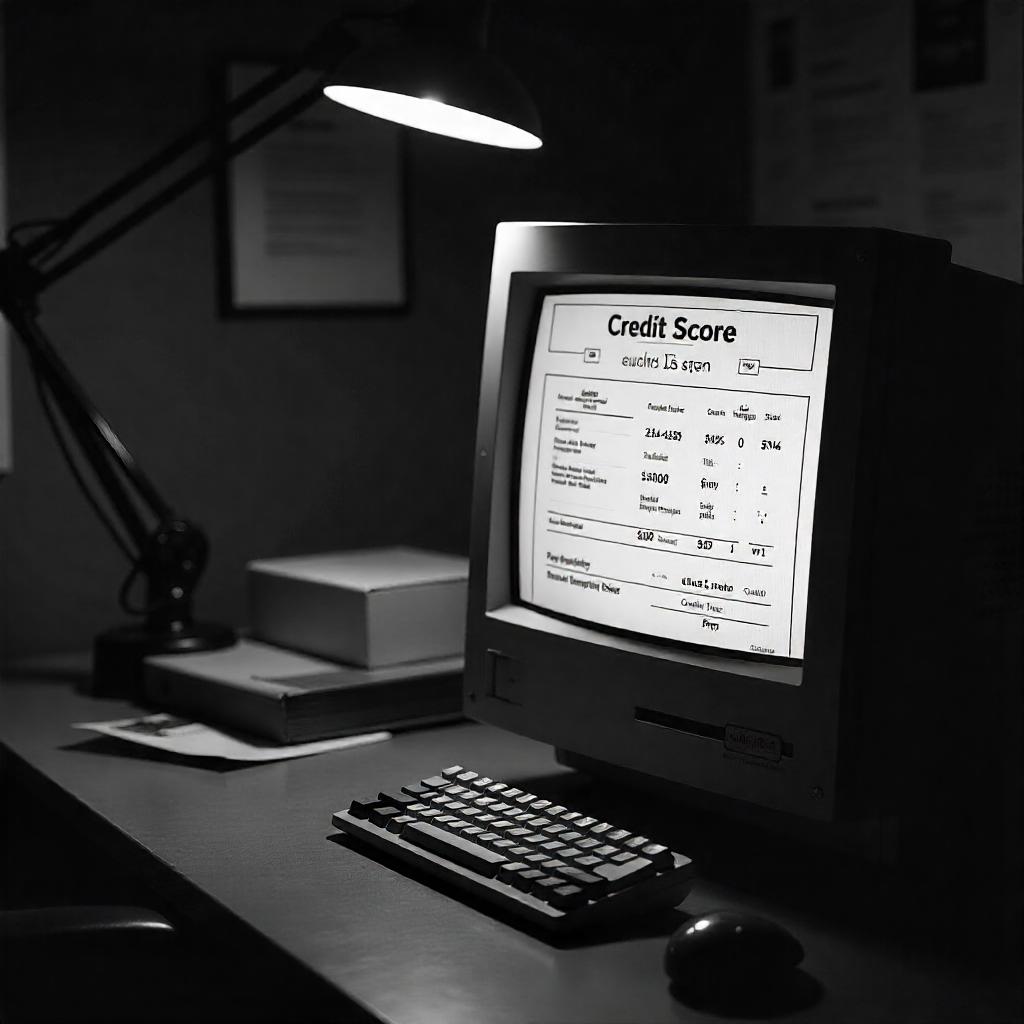Table of Contents
Introduction
Your Credit Score is more than just a number — it’s a financial reputation that follows you everywhere. Whether you’re applying for a mortgage, car loan, credit card, or even certain jobs, your Credit Score plays a critical role in determining the opportunities and interest rates you’re offered.
Thank you for reading this post, don't forget to subscribe!
Why does this matter? Because improving your Credit Score can literally save you thousands of dollars over time. A higher Credit Score often means lower interest rates, better loan terms, higher credit limits, and more negotiating power. On the other hand, a poor score can cost you money in higher fees and missed opportunities.
If you’re ready to take control of your financial future, this post is for you. Below, you’ll discover 7 powerful tips to instantly boost your Credit Score — actionable steps you can start today to raise your rating and build a healthier financial life.
Let’s dive in!
1. Know Where You Stand: Check Your Credit Score Regularly
If you don’t know your current Credit Score, how can you improve it? The first step toward boosting your Credit Score is knowing exactly where you stand. Regularly monitoring your score helps you stay informed about your progress and spot any potential problems early.
Free Tools to Check Your Credit Score
Fortunately, you don’t need to pay to check your Credit Score. There are many free tools and services available, including:
- Credit Karma
- Credit Sesame
- Many banks and credit card companies now offer free Credit Score monitoring as part of their online banking platforms.
Using these tools won’t hurt your Credit Score — they perform a “soft inquiry,” which does not affect your rating.
How Often Should You Check Your Score?
You should aim to check your Credit Score at least once a month. This ensures you’re keeping track of any changes and can quickly react if something unexpected appears (like a late payment or a new account you didn’t authorize).
Checking your score too frequently — like daily — won’t provide much new insight. However, monthly or quarterly reviews are ideal.
The Impact of Monitoring on Improving Your Credit Score
When you regularly check your Credit Score, you stay motivated to maintain good financial habits. Studies show that consumers who monitor their scores frequently are more likely to:
- Pay bills on time
- Keep credit balances low
- Dispute inaccuracies quickly
This simple habit of monitoring alone can lead to noticeable improvements in your Credit Score over time.
2. Pay All Your Bills On Time — It’s Non-Negotiable
When it comes to improving your Credit Score, one factor matters more than anything else: your payment history. This single component typically makes up 35% of your overall score. In other words, on-time payments are non-negotiable if you want to boost your rating.
Why Payment History Matters Most in Your Credit Score
Lenders view your payment history as the strongest indicator of your financial responsibility. If you consistently pay your bills on time, it shows that you’re a trustworthy borrower. On the flip side, even a single late payment can stay on your credit report for up to seven years and can cause your score to drop significantly.
This applies to all types of credit accounts:
- Credit cards
- Mortgages
- Car loans
- Student loans
- Personal loans
Even missed payments on smaller accounts (like utility bills or phone plans) can sometimes get reported to credit agencies, damaging your score.
Setting Reminders and Using Auto-Pay Features
Life gets busy, but missing payments can seriously hurt your Credit Score. Luckily, there are easy ways to avoid this:
- Set payment reminders: Use your phone’s calendar, a budgeting app, or email alerts from your bank.
- Enable auto-pay: Most banks and credit card companies allow you to set up automatic payments for at least the minimum amount due. This ensures you never miss a payment, even if you forget or are traveling.
By staying on top of your payment schedule, you protect the most important part of your Credit Score and set yourself up for steady improvement over time.
3. Lower Your Credit Utilization Ratio
Your Credit Utilization Ratio is the second-biggest factor that affects your Credit Score — typically accounting for around 30% of your score calculation. Lowering this ratio can quickly improve your rating.
What Is Credit Utilization and Why Does It Affect Your Credit Score?
Credit utilization measures how much of your available credit you are currently using. It’s calculated by dividing your total credit card balances by your total credit limits, then multiplying by 100 to get a percentage.
For example:
If your total credit card limit is $10,000 and you have $3,000 in balances, your utilization is 30%.
Why does this matter? Lenders view high utilization as a red flag that you may be over-reliant on credit, which could make you a riskier borrower. Lower utilization signals better financial health and can improve your Credit Score.
Quick Methods to Reduce Utilization
- Pay down balances as much as possible — especially before your billing cycle ends
- Spread balances across multiple cards instead of maxing out one
- Ask for a credit limit increase (but avoid taking on new debt)
- Pay twice per month — this keeps your reported balance lower even if you use your cards frequently
The 30% Rule (And Why Lower Is Better)
Experts recommend keeping your credit utilization ratio below 30% — but the lower, the better. Utilization under 10% can lead to even bigger improvements in your Credit Score.
4. Don’t Close Old Credit Accounts (Here’s Why)

It may seem smart to close old or unused credit cards, but this can actually hurt your Credit Score in certain cases.
How the Length of Credit History Impacts Your Credit Score
Your credit history length accounts for about 15% of your overall Credit Score. Lenders want to see that you have a long track record of managing credit responsibly.
When you close an old account, you lose that account’s positive contribution to your “average age of accounts,” which can lower your score — especially if the account is in good standing.
Managing Older Accounts Strategically
- Keep older accounts open if they’re in good standing and have no annual fee
- Use old cards occasionally for small purchases, then pay them off to keep the account active
- Only close accounts if necessary (for example, if the card charges high annual fees you no longer want to pay)
By keeping your credit history intact, you help maintain a higher Credit Score over time.
Check Out: Late Payments on Credit Score: 5 Shocking Ways They Can Damage Your Rating.
5. Limit New Credit Applications
Each time you apply for a new credit card, loan, or line of credit, a hard inquiry is placed on your credit report — and too many of these in a short period can lower your Credit Score.
What Are Hard Inquiries and How Do They Affect Your Credit Score?
A hard inquiry happens when a lender pulls your full credit report to assess your creditworthiness. Each hard inquiry can lower your score by a few points, and multiple inquiries can compound the impact.
The effect is usually temporary, but applying for too much credit too often may signal to lenders that you’re financially unstable — which can hurt your approval chances.
When and How to Apply for New Credit Wisely
- Only apply for new credit when you truly need it
- Space out applications to avoid multiple inquiries within a short time
- Pre-qualify online when possible — this often results in a soft inquiry instead of a hard one
- Be selective: Research cards or loans in advance and apply for the ones you are most likely to be approved for
By limiting new credit applications, you help protect your Credit Score and demonstrate financial responsibility to lenders.
6. Fix Errors on Your Credit Report
Even if you follow all the right steps to improve your Credit Score, hidden errors on your credit report can drag your score down — often without you knowing. That’s why checking for inaccuracies is a critical part of managing your credit.
How Common Are Credit Report Errors?
More common than you think! A recent study by the Federal Trade Commission found that 1 in 5 Americans have at least one mistake on their credit report — and these errors can lower your Credit Score unnecessarily.
Typical errors include:
- Incorrect account balances
- Accounts that don’t belong to you
- Duplicate accounts
- Incorrect payment history
- Outdated negative items that should have been removed
How to Get a Free Credit Report
Under U.S. law, you’re entitled to one free credit report per year from each of the three major credit bureaus:
- Equifax
- Experian
- TransUnion
(Pro Tip: During certain periods — like the COVID-19 pandemic — the bureaus have allowed more frequent free access. Always check for the latest policies.)
Step-by-Step Process to Dispute Errors and Boost Your Credit Score
- Download your credit report and review it carefully
- Highlight any incorrect or suspicious entries
- Gather supporting documentation (for example, proof of payment or statements)
- Submit a dispute through the credit bureau’s website (all three allow online disputes)
- The bureau typically has 30 days to investigate and respond
- If an error is corrected, your Credit Score can improve quickly — sometimes in just a few weeks!
Regularly checking and cleaning up your credit report ensures your Credit Score reflects your true financial habits.
7. Diversify Your Credit Mix

Another lesser-known but important factor in your Credit Score is your credit mix, which accounts for about 10% of your overall score.
What Is a “Credit Mix” and Why It Matters?
Your credit mix refers to the different types of credit accounts you manage — and lenders like to see variety because it shows that you can handle different financial responsibilities.
Examples of different credit types:
- Credit cards (revolving credit)
- Installment loans (personal loans, car loans, mortgages)
- Student loans
- Retail credit accounts
A diverse credit mix indicates that you can manage various types of debt responsibly, which helps boost your Credit Score.
Tips to Responsibly Add Variety to Your Credit Profile
- Don’t open accounts you don’t need — only add credit types that make sense for your financial goals
- Consider adding an installment loan if your credit profile lacks one (for example, a small personal loan or credit builder loan)
- If you only have installment loans, adding a credit card (used responsibly) can help diversify your credit mix
Bonus Tip: Be Patient and Stay Consistent
Why Credit Score Improvements Take Time
While some Credit Score improvements (such as correcting an error or lowering utilization) can happen quickly, the full process often takes time — especially for building long-term payment history and increasing the age of your accounts.
Remember: Credit Scores reward consistency. Even small improvements, repeated month after month, can add up to major results.
How to Maintain Steady Progress
- Pay every bill on time, every month
- Keep balances low relative to your credit limits
- Regularly review your credit report for errors
- Avoid unnecessary new credit inquiries
- Maintain older accounts in good standing
By staying the course, you’ll build a strong Credit Score that opens doors to better financial opportunities.
Conclusion
Your Credit Score is one of the most important factors in your financial life — but the good news is, it’s also something you can actively improve.
Let’s quickly recap the 7 powerful tips to instantly boost your Credit Score:
- Know where you stand: Check your Credit Score regularly
- Pay all your bills on time — no exceptions
- Lower your credit utilization ratio
- Don’t close old credit accounts unnecessarily
- Limit new credit applications
- Fix errors on your credit report
- Diversify your credit mix
Improving your Credit Score doesn’t have to be overwhelming. Start by applying just one or two of these tips today — and as you build momentum, continue adding new habits.
- Monitor your progress regularly
- Celebrate small wins along the way
- Stay patient — because lasting improvements do take time
Remember: every positive step you take today can lead to better credit opportunities and greater financial freedom tomorrow. So why wait? Start boosting your Credit Score now!
For more info: Click Here.
FAQs
Q1. How fast can I improve my Credit Score?
Improvements can happen as quickly as 30–60 days, especially if you lower your credit utilization or successfully dispute a credit report error. Larger, long-term improvements (like building payment history or raising your average account age) take several months to a year.
Q2. What is a good Credit Score range?
- Excellent: 800+
- Very Good: 740–799
- Good: 670–739
- Fair: 580–669
- Poor: below 580
A score of 670 or higher is typically considered “good” by most lenders.
Q3. Does checking my Credit-Score hurt my rating?
No — checking your own Credit Score is considered a “soft inquiry,” which does not affect your score at all. It’s only when lenders perform a “hard inquiry” for new credit applications that your score may drop by a few points.
